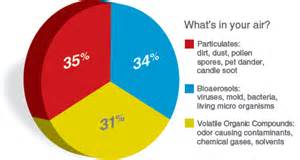Why Does MERV Matter?
If you’re new to the world of furnace and AC filters, you likely have heard rumblings about MERV but you may not have a clue as to what it means. It’s got a funny name, but it’s an important factor to consider when making a filter purchase because it can make all the difference in air quality and of course price.
MERV is not a robot from the latest sci-fi movie; rather, it’s a ratings system to measure the effectiveness of your air filtration system – mainly your air purifiers, furnaces and air conditioners. It stands for Minimum Efficiency Reporting Value and tests a filter’s performance by particle size, ranging from 0.3 – 10 microns in size, with a value based on the lowest, or minimum, efficiency for any given filter. Here are some of the common particles that filters can remove:
- Pollen
- Dust mites
- Textile and carpet fibers
- Mold spores
- Dust
- Pet dander
- Bacteria
- Tobacco smoke
In general, anything rated MERV 7 to 12 will be enough to filter airborne contaminants for most residential systems. You only need MERV 13-16 for hospital, medical and general surgery settings.

Here are some
quick facts about MERV to keep in mind:
- MERV ratings go from 1 to 16 (actually the ratings can go up to 20, but anything between 17 and 20 should be strictly reserved for clean rooms and pharmaceutical applications)
- The higher the MERV rating, the fewer dust particles that can pass through
- The higher the MERV rating, the more frequently your filters need to be changed
Higher ratings aren’t always better. Think about it: the higher the MERV rating, the smaller the pores for allowing air through the filter. This in turn can cause airflow resistance – much more than your simple residential HVAC system can handle. What happens? Your filters become inefficient and can actually start working against you. When you reduce the air flow, you negatively impact the air quality that your family breathes in. In addition to reduced air quality, you’re taxing the fan of your furnace or AC system.
In a nutshell, your time and money would be better spent purchasing MERV 8 filters and changing them more often rather than getting MERV 13s, which cost more and require more frequent replacement. Basically, the 13s remove dust and allergens from the air so well that they get packed with dust faster than a MERV 8. Make sense?
In any case, you should change your filters at least every three months to keep your airflow unrestricted and your air quality as clean as possible. Other factors may play into how often you change the filters, too. Do you live near a congested freeway? Is there a lot of construction going on near your home? Do you have pets that shed a lot? Do you have family members who suffer from allergies, asthma, and other upper respiratory diseases? You may want to change the filters on a more frequent basis.
Have more questions about MERV? We are here to answer them! Call or send us an email, or check us out on Facebook. Sign up for our newsletter for money-saving online codes, too!